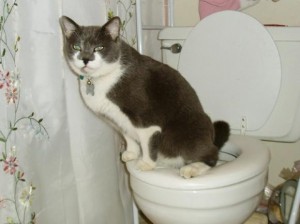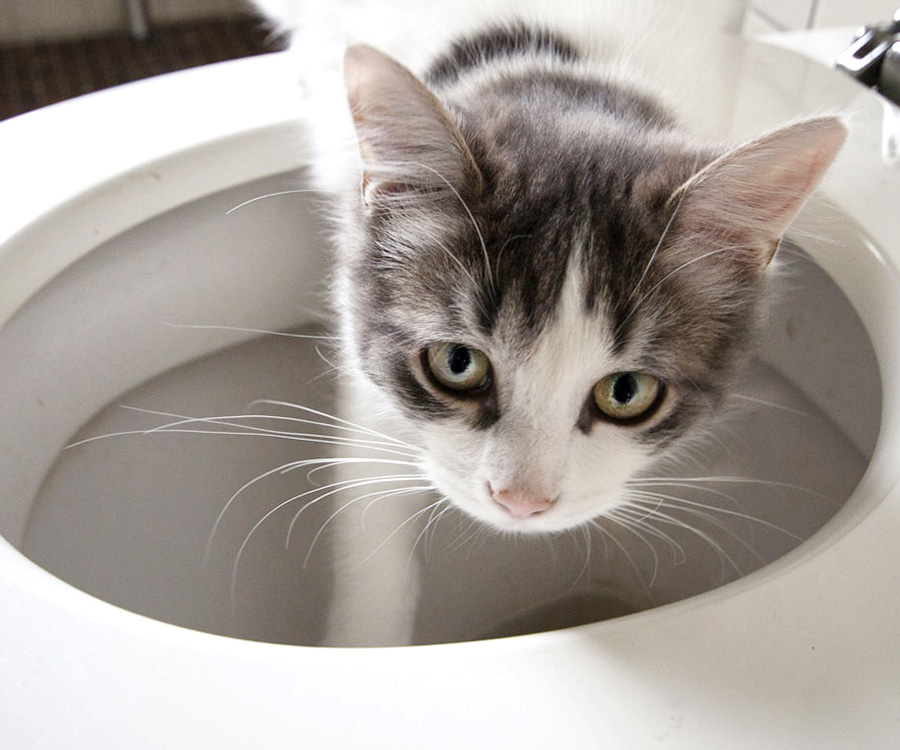Avoid Clogs and Damage: Never Flush Cat Poop Down Your Toilet - Expert Recommendations
Avoid Clogs and Damage: Never Flush Cat Poop Down Your Toilet - Expert Recommendations
Blog Article
Just how do you feel when it comes to Can You Flush Cat Poo or Litter Down the Toilet??

Intro
As pet cat owners, it's vital to be mindful of exactly how we deal with our feline good friends' waste. While it might appear hassle-free to flush cat poop down the toilet, this method can have damaging consequences for both the atmosphere and human wellness.
Alternatives to Flushing
Fortunately, there are safer and much more liable means to dispose of cat poop. Consider the adhering to choices:
1. Scoop and Dispose in Trash
The most usual technique of throwing away feline poop is to scoop it into an eco-friendly bag and throw it in the garbage. Make certain to use a devoted clutter scoop and deal with the waste promptly.
2. Usage Biodegradable Litter
Choose eco-friendly cat trash made from materials such as corn or wheat. These litters are eco-friendly and can be safely thrown away in the garbage.
3. Bury in the Yard
If you have a backyard, think about hiding pet cat waste in an assigned location far from vegetable yards and water sources. Be sure to dig deep sufficient to avoid contamination of groundwater.
4. Mount a Pet Waste Disposal System
Buy a family pet waste disposal system especially made for feline waste. These systems use enzymes to break down the waste, lowering smell and ecological impact.
Health Risks
Along with ecological problems, flushing cat waste can likewise pose health and wellness risks to human beings. Pet cat feces may consist of Toxoplasma gondii, a parasite that can trigger toxoplasmosis-- a potentially extreme ailment, particularly for expecting women and individuals with weakened body immune systems.
Ecological Impact
Purging feline poop introduces hazardous pathogens and bloodsuckers into the supply of water, presenting a substantial threat to marine environments. These pollutants can negatively impact marine life and compromise water quality.
Final thought
Accountable family pet ownership extends past offering food and sanctuary-- it likewise includes proper waste monitoring. By avoiding purging pet cat poop down the bathroom and going with alternate disposal approaches, we can reduce our ecological footprint and secure human health and wellness.
Why Can’t I Flush Cat Poop?
It Spreads a Parasite
Cats are frequently infected with a parasite called toxoplasma gondii. The parasite causes an infection called toxoplasmosis. It is usually harmless to cats. The parasite only uses cat poop as a host for its eggs. Otherwise, the cat’s immune system usually keeps the infection at low enough levels to maintain its own health. But it does not stop the develop of eggs. These eggs are tiny and surprisingly tough. They may survive for a year before they begin to grow. But that’s the problem.
Our wastewater system is not designed to deal with toxoplasmosis eggs. Instead, most eggs will flush from your toilet into sewers and wastewater management plants. After the sewage is treated for many other harmful things in it, it is typically released into local rivers, lakes, or oceans. Here, the toxoplasmosis eggs can find new hosts, including starfish, crabs, otters, and many other wildlife. For many, this is a significant risk to their health. Toxoplasmosis can also end up infecting water sources that are important for agriculture, which means our deer, pigs, and sheep can get infected too.
Is There Risk to Humans?
There can be a risk to human life from flushing cat poop down the toilet. If you do so, the parasites from your cat’s poop can end up in shellfish, game animals, or livestock. If this meat is then served raw or undercooked, the people who eat it can get sick.
In fact, according to the CDC, 40 million people in the United States are infected with toxoplasma gondii. They get it from exposure to infected seafood, or from some kind of cat poop contamination, like drinking from a stream that is contaminated or touching anything that has come into contact with cat poop. That includes just cleaning a cat litter box.
Most people who get infected with these parasites will not develop any symptoms. However, for pregnant women or for those with compromised immune systems, the parasite can cause severe health problems.
How to Handle Cat Poop
The best way to handle cat poop is actually to clean the box more often. The eggs that the parasite sheds will not become active until one to five days after the cat poops. That means that if you clean daily, you’re much less likely to come into direct contact with infectious eggs.
That said, always dispose of cat poop in the garbage and not down the toilet. Wash your hands before and after you clean the litter box, and bring the bag of poop right outside to your garbage bins.
https://trenchlesssolutionsusa.com/why-cant-i-flush-cat-poop/

As a devoted person who reads on Can You Flush Cat Poop Down The Toilet?, I figured sharing that piece was beneficial. You should set aside a second to promote this blog posting if you liked it. I cherish reading our article about Can You Flush Cat Poop Down The Toilet?.
Book-Now Report this page